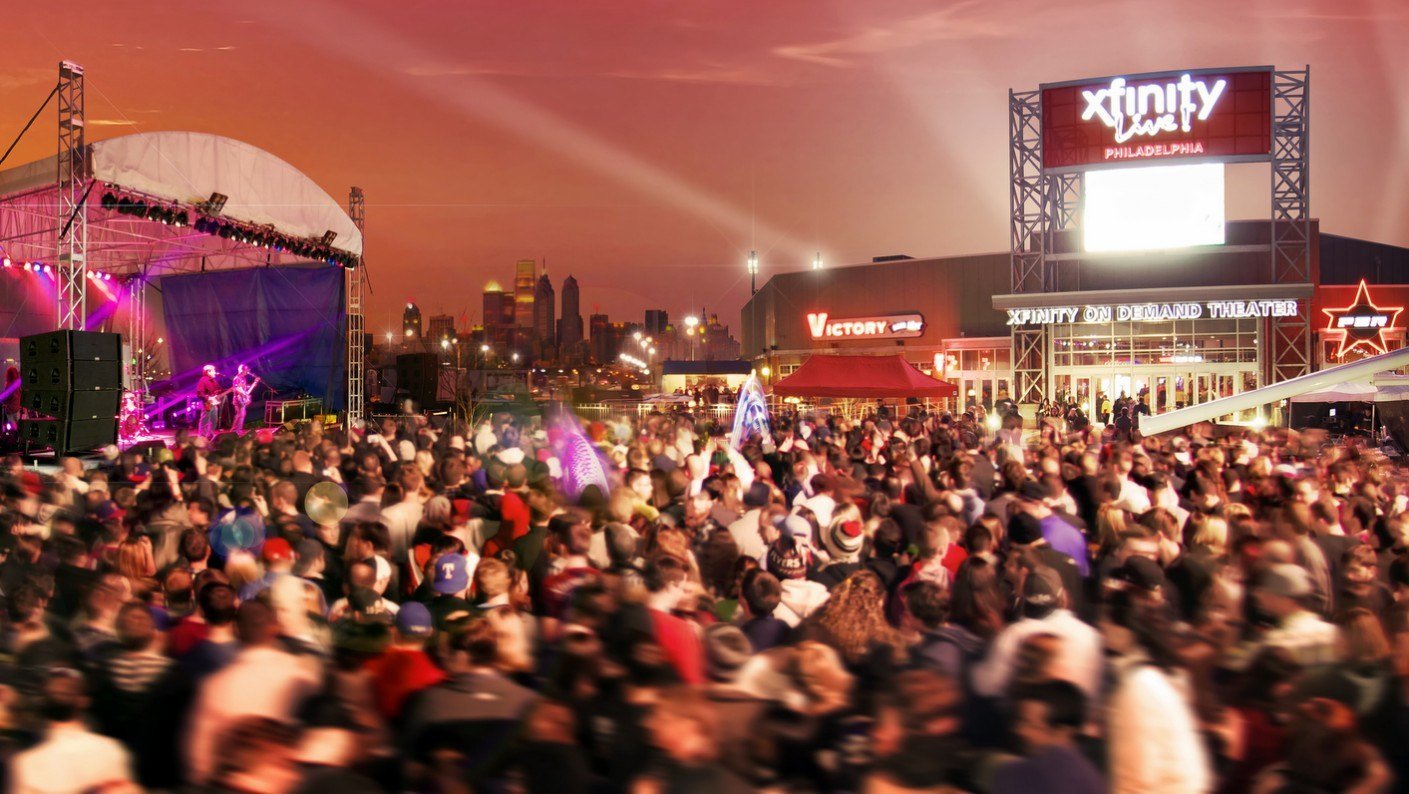Philadelphia Casino Lawsuit Dropped, PA Gambling Expansion Bill Generates $1 Million
Posted on: November 3, 2017, 01:00h.
Last updated on: November 3, 2017, 11:05h.
A second Philadelphia casino is cleared for construction, after rival SugarHouse dropped its ongoing lawsuit against Stadium Casino, LLC, that has prevented the Live! Hotel & Casino project in the Stadium District from moving forward.

The cease of the legal challenge comes as a result of the massive gambling expansion bill signed into law this week by Governor Tom Wolf (D). SugarHouse was challenging whether Armenian billionaire Bob Manoukian, who owns a controlling 86 percent stake in Parx Casino, a venue 20 miles north of downtown Philly in Bensalem, could also hold a more than one-third stake in Live!
The Keystone State’s previous casino regulations mandated that “No slot machine licensee, its affiliate, intermediate, subsidiary or holding company possess ownership or financial interest that is greater than 33.3 percent of another gambling venue.”
Stadium Casino is a joint partnership between The Cordish Companies, the Baltimore-based owner of the Live! brand, and Manoukian’s Greenwood Racing. Manoukian said he wouldn’t actually own interest in the Live! Philadelphia casino, instead deferring the assets to a trust controlled by his sons.
The gambling expansion bill signed into law this week repeals the limiting of casino ownership, essentially nulling SugarHouse’s legal argument.
Live! is expected to cost $600 million, and will feature 2,000 slot machines, 125 table games, and 200-room hotel. The venue will be located adjacent to the city’s sports stadiums where the Eagles, Phillies, 76ers, and Flyers play.
SugarHouse Counting Losses
Pennsylvania, already the second commercial gambling state in America behind only Nevada, is expanding in order to help fund a $2.2 billion state budget gap. The new law permits the construction of 10 satellite casinos, online gambling including interactive poker and slots, daily fantasy sports, gaming terminals in truck stops, airport gaming lounges, and lays out regulations for sports betting.
It also provides provisions for Pennsylvania’s two resort casinos, Valley Forge and Lady Luck Nemacolin, to pony up $1 million in order to ease restrictions on their gaming operations. Valley Forge did just that this week.
Valley Forge and Lady Luck are Category 3 licenses, which restricts their floors to 600 slot machines and 50 table games. Being “resort casinos” where the casino is meant to compliment the property’s other operations and not be the main draw, both have only been allowed to welcome hotel guests, membership holders, and resort customers who spend at least $10 elsewhere on the grounds to gamble.
But under the new law, Category 3 establishments can pay $1 million to open access to the general public. That might not sit well with Category 2 standalone casinos like Sands Bethlehem and SugarHouse, which paid $50 million for their licenses. Valley Forge and Lady Luck initially paid just $5 million for their Category 3 gaming permits.
Taking Applications
Pennsylvania’s 10 Category 2 licensees will be able to build a satellite casino in areas at least 25 miles from a present gambling facility. But local communities first have their say in determining whether they want to host such a venue.
The Pennsylvania Gaming Control Board says municipalities have until December 31 to notify the state if they’re opting out of the satellite bidding process, or wish to be considered.
Towns stand to collect local share payments annually should they welcome the casinos.
No comments yet